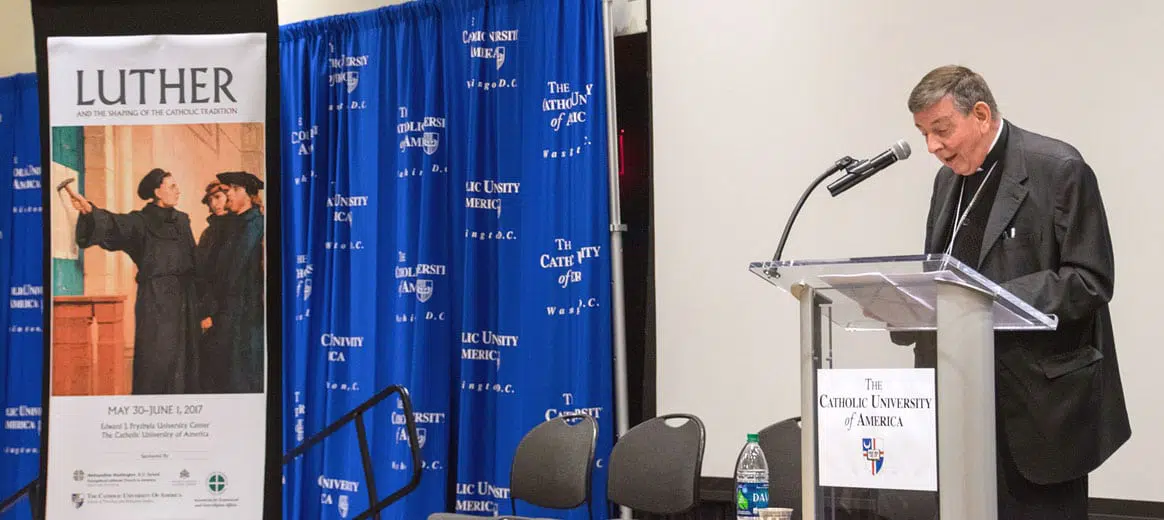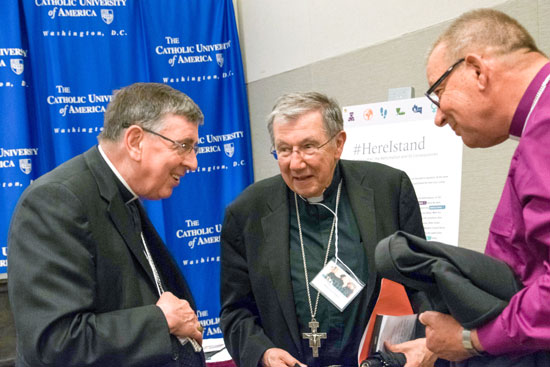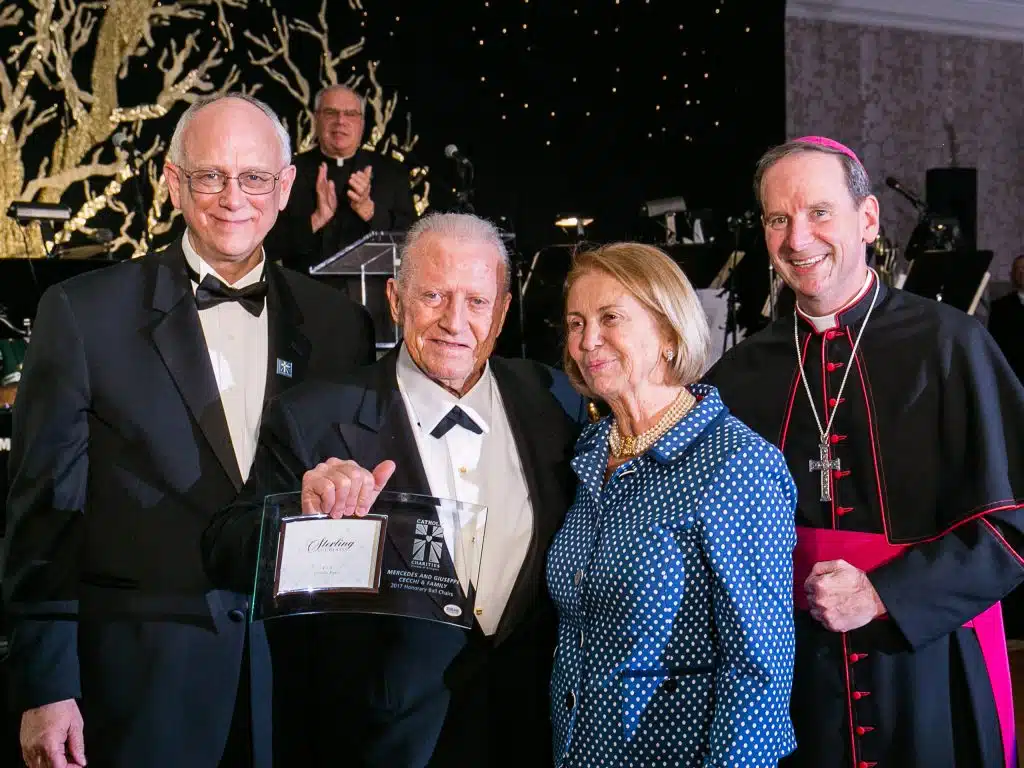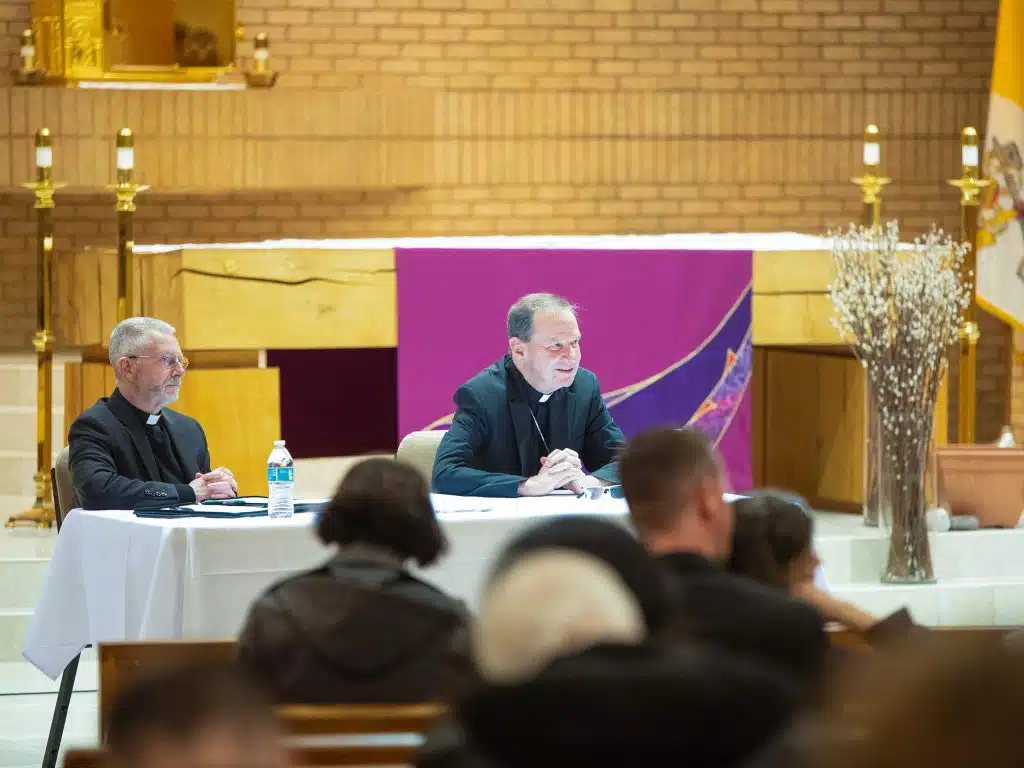It was only a declaration against the selling of indulgences. Yet
a few years after Augustinian priest Martin Luther wrote the 95 Theses,
Christianity was divided between more than Lutherans and Catholics.
Anabaptists, Zwinglists, Calvinists and others groups took root all across
Europe, and the religious turmoil quickly turned political. Peasant uprisings,
religious persecution and, most notably, the 30 Years War turned the continent
into a sea of blood.
Five hundred years later, the church has been fragmented into
countless Christian sects. While time has brought dissolution, the recent past also
has brought a fresh commitment from the original players in the Reformation to
reconcile their differences. A conference at Catholic University in Washington,
“Luther and the Shaping of the Catholic Tradition,” gathered the theologians
who have dedicated much of their lives to putting the church back together
again.
Cardinal Kurt Koch, president of the Pontifical Council for Promoting
Christian Unity, spoke May 30 about the often acrimonious relationship between
Lutherans and Catholics. Unsurprisingly, Luther was vilified by Catholics in
the centuries that followed the Reformation. As one theologian put it, “Luther invented
the doctrine of justification through faith and not works solely for the
purpose of being able to feel all the more carefree while living his dissolute
life,” said Cardinal Koch.
Cardinal Kurt Koch (left), president of the Pontifical Council
for Promoting Christian Unity, retired Baltimore Auxiliary Bishop Denis J. Madden (center) and Evangelical Lutheran Bishop Eero Huovinen (right) talk after the May 30 evening
session of “Luther and the Shaping of the Catholic Tradition” at Catholic
University in Washington. Zoey Maraist | Catholic Herald
Yet slowly, a more historically accurate, positive and nuanced
view of Luther began to form. St. John Paul II and Pope Benedict XVI admitted
that Luther was a faithful man who sincerely sought the truth. As Cardinal Koch
said, “If Martin Luther’s call to repentance and reform had found open ears
among the bishops of the time and of the pope in Rome, the reform intended and
enunciated by him would not have become the Reformation. The Catholic Church at
the time must bear its share of the blame.”
This re-examination of the past has laid the groundwork for the fruitful
ecumenical dialogue of the past 50 years. Perhaps the greatest achievement has
been the 1999 Joint Declaration on Justification, which declared that “the subscribing
Lutheran churches and the Roman Catholic Church are now able to articulate a
common understanding of our justification by God’s grace through faith in
Christ.” Yet many more doctrinal disputes remain, said Evangelical Lutheran Bishop
Eero Huovinen.
As with Cardinal Koch, Bishop Huovinen has spent much of his career
trying to bridge the gap between the two denominations. He was a member of the
drafting group for the Joint Declaration on the Doctrine of Justification and
later served as co-chair of the Roman Catholic-Lutheran dialogue group for
Sweden and Finland. In his speech to the conference, the bishop often
referenced the most recent ecumenical document, “Declaration on the Way,” as a
sign of progress in identifying common ground and areas for future discussion.
Importantly, Lutherans and Catholic agree that Jesus is present physically
in His entirety in the Eucharist. They believe in a priesthood of believers and
in a priesthood of the ordained. “Ministry is not simply a delegation ‘from
below,’ but is instituted by Jesus Christ. Catholics and Lutherans agree that this
(is an) apostolic and God-given ministry,” according to the declaration.
Still, Lutherans famously do not accept the authority of councils
or the pope. “Lutherans maintain that no church office or decision is so immune
from error and sin as to be exempt from critical examination in view of reform,”
the document states. Differences such as these compound because the three primary
obstacles to union — the understanding of holy orders, the Eucharist and the
church — all go hand in hand.
“Eucharistic communion depends upon the mutual recognition of
ministry, which is in turn dependent upon the recognition of each ecclesial
community as truly apostolic,” notes the declaration.
Productive dialogue depends not only on ongoing discussion but
also on mutual respect, said Bishop Huovinen. For example, when Lutheran churches
are referred to not as churches but as ecclesial communities, it denotes an air
of illegitimacy.
“My Catholic colleagues would not be happy if I said the Catholic
Church is not a church in the proper sense, mainly in the Lutheran sense,” he
said. “Behind the Catholic terminology is a long tradition and many important
arguments, and I really do not want to undermine them. (But I wonder if with) a
slight terminology change we could create a more open and positive atmosphere
between the churches.”
There are years, if not decades, of herculean work ahead to reconcile
Lutherans and Catholics. Yet as Cardinal Koch, quoting Pope Francis, said, “We
cannot erase what is past, nor do we wish to allow the weight of past
transgressions to continue to pollute our relationships. The mercy of God will
renew our relationships.”




